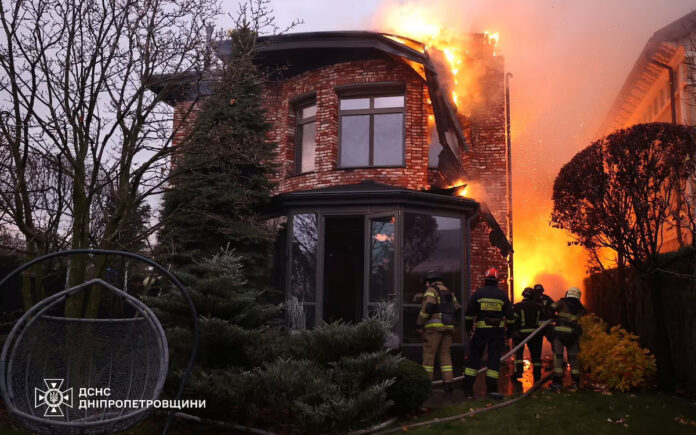Kyiv: Russia has reportedly launched an intercontinental ballistic missile (ICBM) during an attack on Ukraine, marking the first known use of such a weapon in the ongoing conflict. Ukraine’s air force announced the launch on Thursday, describing it as a significant escalation in the 33-month war.
The missile, designed to deliver nuclear strikes over vast distances, underscores growing tensions as Ukraine recently deployed U.S. and British missiles to strike targets inside Russia. This week, Moscow issued warnings, stating that such actions could trigger severe consequences.
First Known Use of ICBM in Combat
Security experts noted that if the ICBM launch is confirmed, it would be the first military use of this strategic weapon. ICBMs are primarily intended for nuclear deterrence. Ukraine did not disclose details about the warhead or the specific missile type, and there is no indication it was nuclear-armed.
Russia has not commented on the report. When asked about the incident, Kremlin spokesperson Dmitry Peskov referred inquiries to the Russian military.
Kyiv-based media outlet Ukrainska Pravda cited anonymous sources claiming the missile was an RS-26 Rubezh, a solid-fuel intercontinental missile with a range of 5,800 km. First tested in 2012, the RS-26 can reportedly carry an 800-kg nuclear warhead and weighs approximately 36 tons, according to the Centre for Strategic and International Studies (CSIS).
Targeted Infrastructure in Dnipro
Ukraine’s air force reported that the missile attack targeted enterprises and critical infrastructure in Dnipro, a central-eastern city. Regional Governor Serhiy Lysak confirmed damage to an industrial site and fires caused by the strike, leaving two people injured.
In addition to the ICBM, Russia launched a Kinzhal hypersonic missile and seven Kh-101 cruise missiles, of which six were intercepted by Ukrainian defenses. The air force stated the ICBM was fired from Russia’s Astrakhan region, over 700 km from Dnipro.
International Reactions
The unprecedented use of an ICBM in the conflict has raised questions among analysts and officials. Ukrainian defense consultancy Defense Express questioned whether the United States, a key Ukrainian ally, was notified in advance to avoid triggering a broader missile warning system.
Andrey Baklitskiy of the U.N. Institute for Disarmament Research commented on X, “If true, this is totally unprecedented and the first actual military use of ICBM.” German security expert Ulrich Kuehn added, “It looks as if Russia has used an intercontinental ballistic missile in a war for the first time in history, targeting the civilian city of Dnipro.”
NATO has not responded to inquiries regarding the ICBM launch.
Also Read | Hungary Strengthens Air Defenses Near Ukraine Border
Escalating Missile Use
The Russian strike followed Ukraine’s use of Western-supplied missiles to target Russian territory. On Tuesday, Ukraine reportedly deployed U.S.-made ATACMS missiles for strikes inside Russia after receiving approval from U.S. President Joe Biden.
Additionally, British Storm Shadow cruise missiles were reportedly used to strike Russia’s Kursk region on Wednesday. Russia’s defense ministry claimed its air defenses intercepted two such missiles but did not provide details on the damage.
Also Read | U.S. Military Strengthens Partnership with Philippines in South China Sea with New Task Force
Broader Implications
The escalating missile exchanges come amid shifting dynamics in global leadership. Russian President Vladimir Putin recently lowered the threshold for a nuclear response to include a broader range of conventional attacks. Meanwhile, U.S. President Biden’s term nears its end, with speculation that incoming leadership could alter the course of the war.
Moscow has consistently labeled Western-backed strikes on Russian territory as major escalations. Ukraine, however, defends its actions, stating the need to target rear bases supporting Moscow’s invasion.



